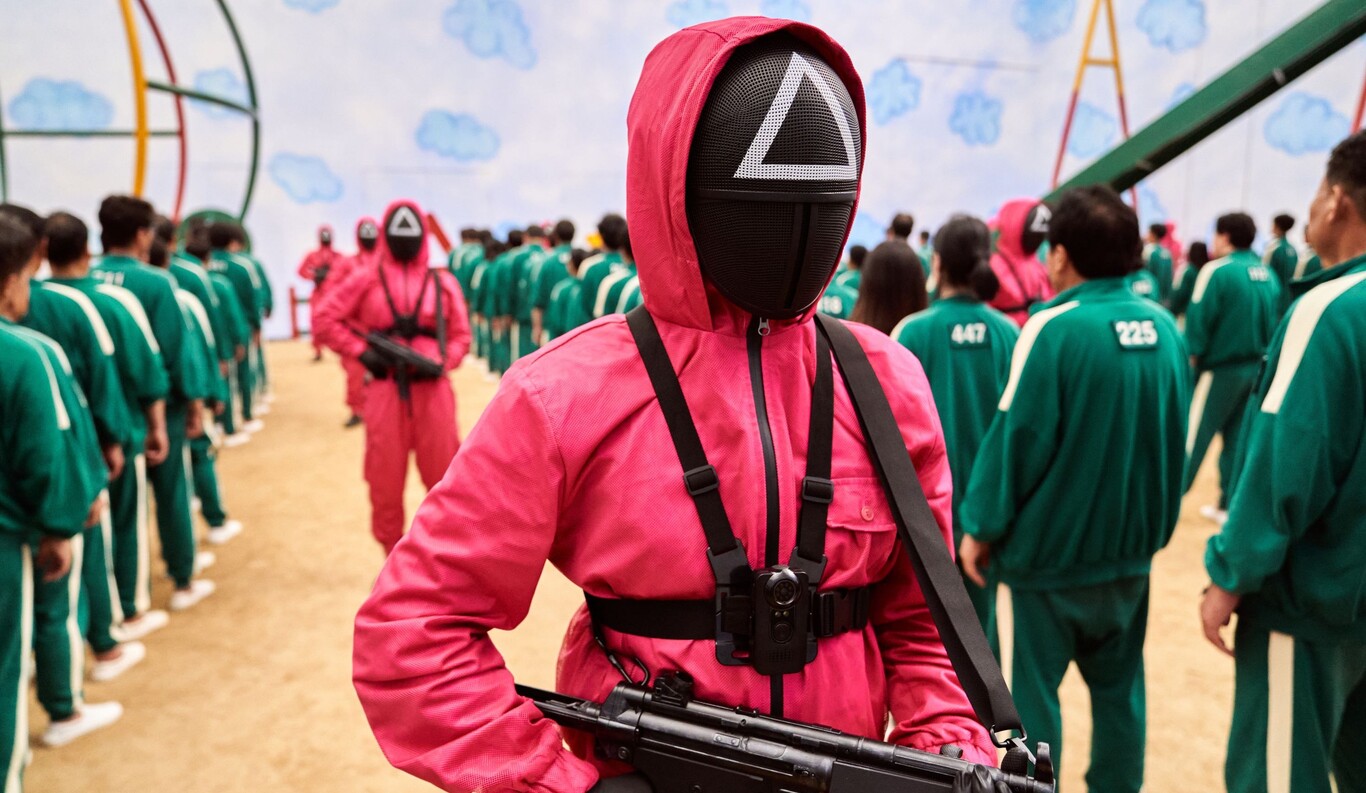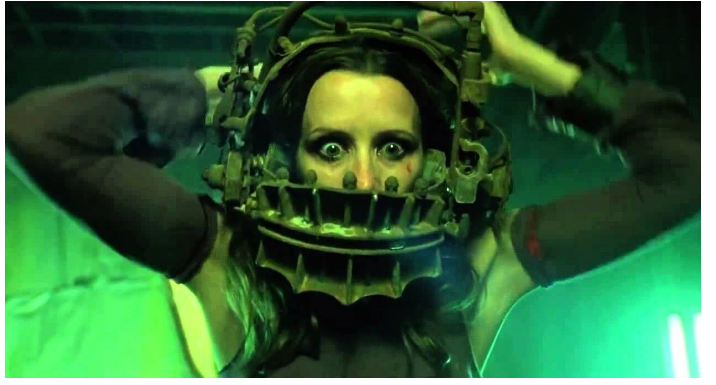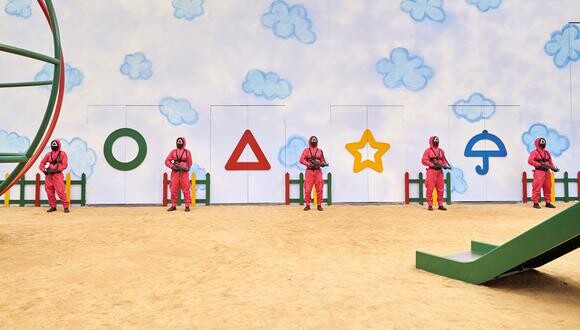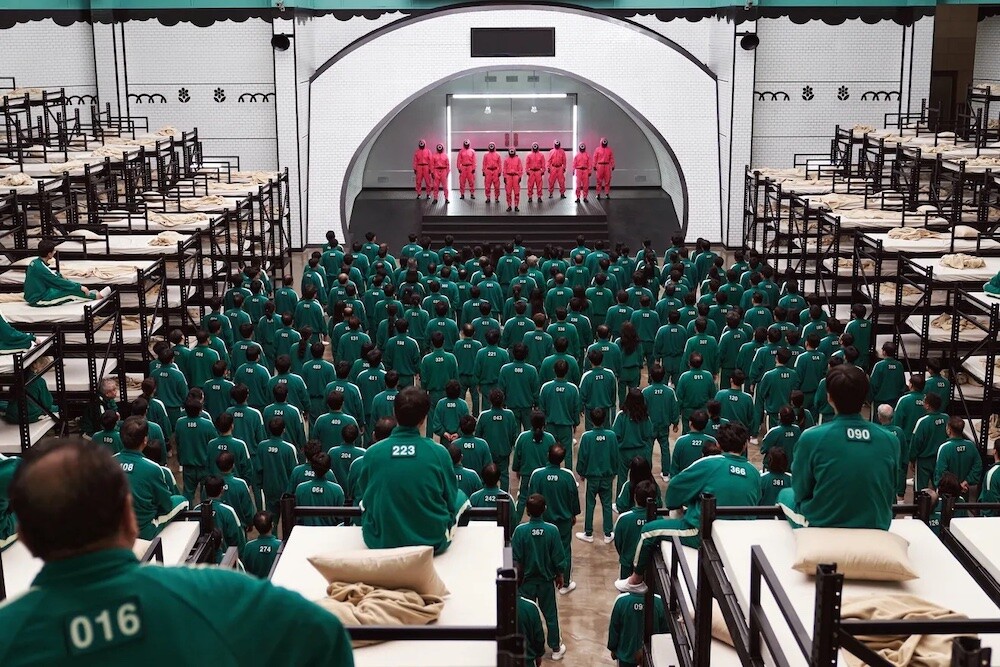
This article contains very mild spoilers for the series.
It has become such a massive and international success that Netflix itself can’t believe it. Ted Sarandos recently acknowledged that “We did not see it coming in terms of its global popularity”, and the truth is that it is on its way to becoming one of the most-watched series on the platform without starting with anything in its favor: Asian origin without actors nor equipment known in the West, it does not belong to a famous franchise and the promotional machinery of Netflix has not been particularly supportive of it (for example, the press did not have access to screeners ahead of its premiere).
However, the spread of his fame, exclusively through the effect of word of mouth, has very clear reasons. The magnetism that it gives off in the plot and the visual materializes in an addictive series, which is brimming with anthological moments, iconic images, and perfect material for memes in each shot. These are some of the keys that have made the series a worldwide phenomenon.
An argument that is almost a meme
The plot of ‘The Squid Game’ is as elemental as it is enigmatic: a group of people with serious economic problems agrees to participate in a game that will make one of them a millionaire. They will only have to survive six tests inspired by children’s games of Korean origin but that we all know, such as the iconic ‘English Hide-and-seek’ with which the massacre opens. For viewers, as easy to understand as it is to communicate… and propagate through the internet.
Two key references: ‘Saw’…

Who is not going to like a saga of systematic and convoluted torture? The ‘Saw saga has gone from being a thriller franchise where the weight was in the suffering and torture suffered by the victims of a dangerous psychopath to a succession of spectacular devices of majestic death, increasingly sophisticated and symbolic. The children’s games transformed into execution devices of ‘The Squid Game’ inherit something of that: their almost moral character, the unnecessarily cumbersome operation, and the knowledge on the part of those responsible for the series that they are the real attraction of the product.
The parallels do not end there. They are also reminiscent of the Jigsaw saga, the anonymity of the torturers, who speak with machines that distort their voices and wear masks, the feeling that the victims are on trial to purge sins they committed in their “normal” lives, and the idea of a lethal game, which, not because it is deadly, does not stop having the springs of a harmless children’s entertainment.
…and ‘The Hunger Games’
It is the other clear reference of the series, tied with ‘Battle Royale’. Not only because of the presentation of a lethal competition in which the contestants risk more than just a diploma but also because of the slightly dystopian tone of the story. The series does not take place in the future, but the ornate aesthetics, the totalitarian gestures, and the grid structure of the tests are reminiscent of the best dystopias. There are no science-fiction components in ‘The Squid Game’, but every time the contestants are shown around the facilities to attend a new test, any viewer’s dystopia detector goes crazy.
The care of your visual section

One of the first impacts that the series offers is the plan of the corridors that communicate the participants with the first test: seemingly infinite stairs where everyone seems to move in different directions. It is inevitable to remember MC Escher’s trompe l’oeil in works like his ‘ Relativity ‘ From him. The entire series shines at the same level: from the aesthetics of the tests (between the childish and the perverse) to some montages that relate all the characters (for example, with the contestants following the same ritual of getting into a car in alone when they decide to return to the contest), going through abundant symmetrical general plans or from unusual perspectives. Visually, the series continually surprises.
Its plot structure is different from what we already know by heart

If ‘The Squid Game’ were a Western series, you know what structure it would have: the characters enter the contest and we learn what has led them there through very heavy flashbacks that do not interest us too much. But here the twist comes early: the characters, about whom we still don’t know anything, vote to leave the contest… and they succeed. It is through this brief stay abroad that we not only learn about each other’s story in a different way from the usual narrative of the series, maintaining interest, but we also understand the reasons why they do not try to escape from an environment so dangerous.
The message is tremendously non-conformist

Another clear reference that we can put on the table when talking about ‘The Squid Game’ is the latest international success of Korean cinema: ‘Parasites’, a rabidly anti-capitalist (and at times anti-system) film that denounces with humor and grotesque caricature. The painful situation that practically the entire human race faces, voluntarily assuming debts, stressful jobs, and naive abstract happiness as a goal that never ends. ‘El juego del squid’ tells exactly that (also sharing the composer of the soundtrack), but without preaching or fussing: the viewer perfectly understands why the system has trapped the characters, why they are desperate to get out… … and why the game that allows them to get out fast is also a cheat. Also, as a curiosity, ‘Parasites’ and ‘The Squid Game’ share the same soundtrack composer, Jung Jae-il.
The extraordinary performances by the cast, often bordering on parody but never losing sight of the essential humanity of the characters, go a long way to communicating that message. Lee Jung-Jae and Park Hae-soo lead a group of losers who react with helplessness, rage, apathy, or even numb good humor to an untenable situation, to the point that they agree to throw themselves into the lion’s den (several times! !) out of sheer desperation.
Not cut in the slightest
And that is its great value, after all: when it flirts with terror or fantasy, the series does so by transforming the aesthetics of the images. When subplots involving gore and violent savagery are at play, the visuals are unbearably shocking. The deaths number literally in the hundreds (and we see them all) and even the satirical comedy he flirts with is anything but coy.
‘The Squid Game’ is brave and insane, and has conquered viewers around the world, simply because it takes no prisoners in its story and is committed to it until the end. As Korean commercial cinema has been doing this for decades, on the other hand, although that is a bandage that we will have to take off another time.

Sharlene Meriel is an avid gamer with a knack for technology. He has been writing about the latest technologies for the past 5 years. His contribution in technology journalism has been noteworthy. He is also a day trader with interest in the Forex market.






